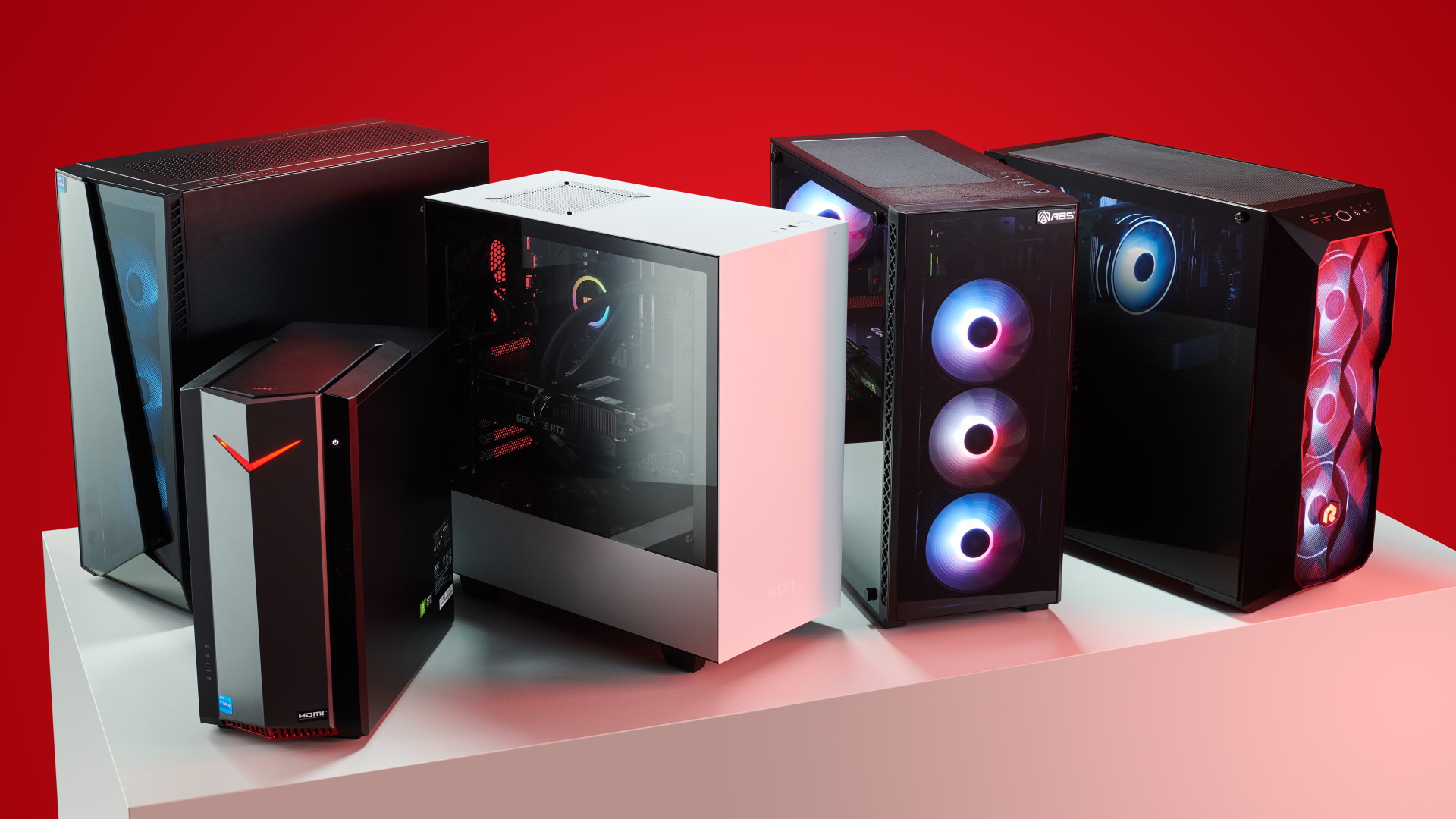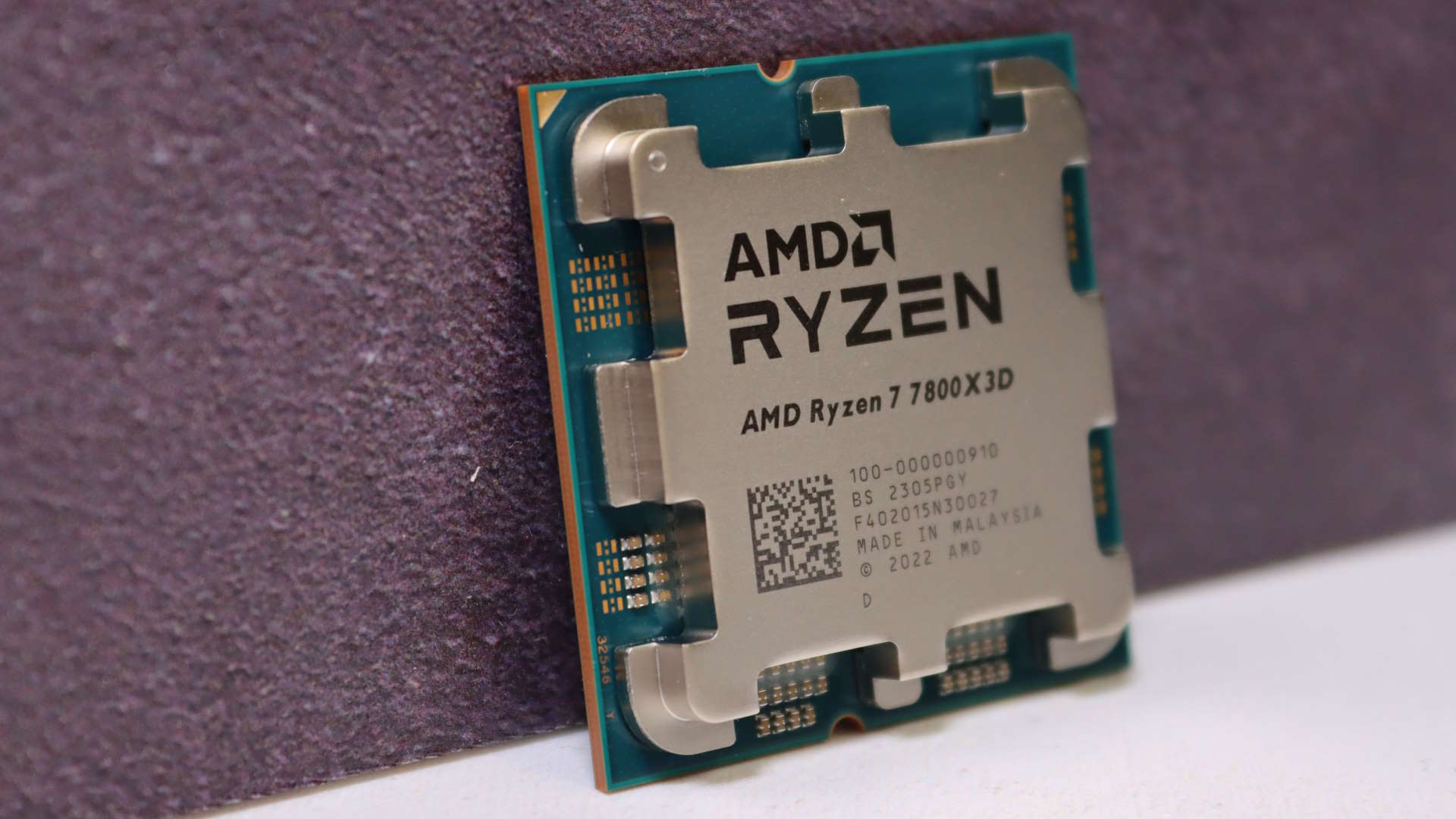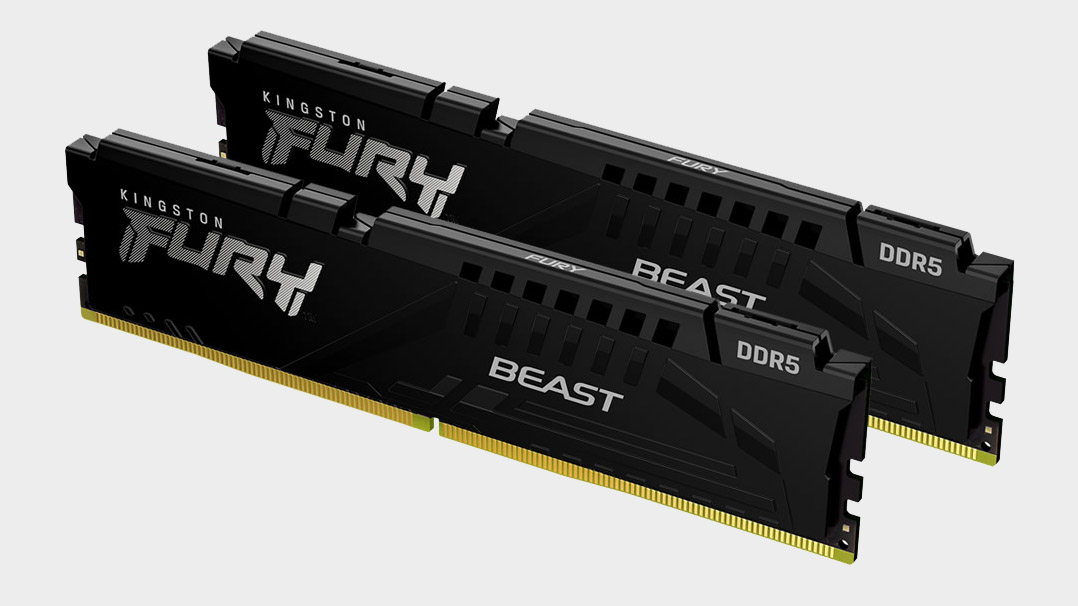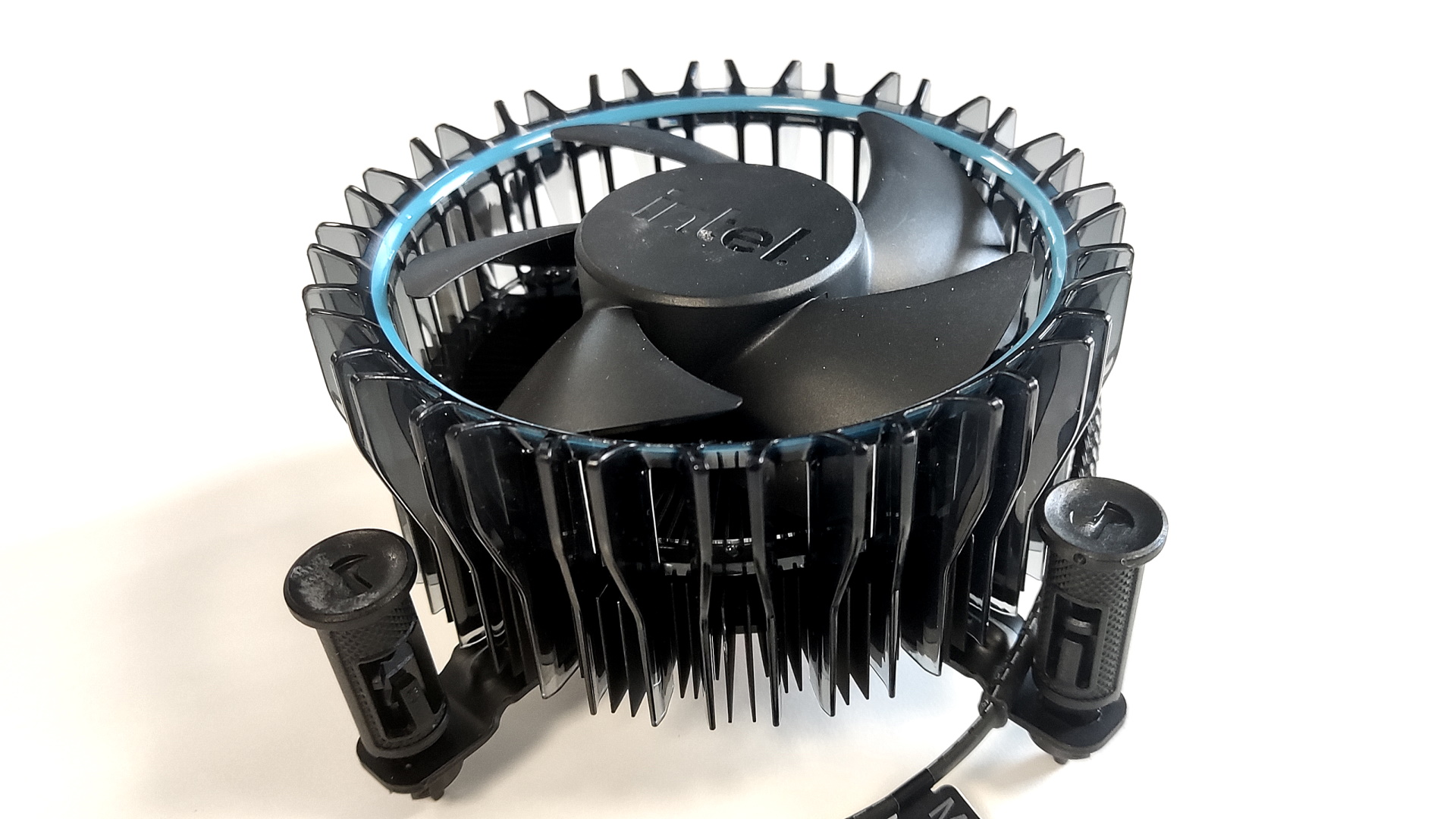How to spot the best Black Friday gaming PC deals this year
Be smart, don't pay over the odds for a high-end gaming PC.

The annual Black Friday gaming PC deal bonanza looms ever closer but finding an offer that's actually worth your time and money is always going to be difficult. If you're looking to avoid buyer's remorse in an ever-changing market, you've come to the right place.
I've put together the following Black Friday gaming PC crib sheet here, with the prices you should expect to spend on a prebuilt machine when Black Friday kicks off on November 24.
One important thing to remember when tracking down a gaming PC deal for Black Friday is that just because a discount is large, it doesn't mean that the deal itself is any good. What might look like a big saving could potentially be poor value for money because the original price shown was boosted sky-high before the sales.
To try and spot this, I use camelcamelcamel as a browser extension. It lets me check how Amazon's prices have changed over time. This way I can easily see if the price drop is genuinely big or misleadingly big, simply because the vendor hiked the price up before the sales.
- We're curating all the best Black Friday PC gaming deals right here.
When buying a prebuilt gaming PC, an important thing to consider is the graphics card—it's the main component retailers hang pricing around as it dictates the bulk of the machine's gaming prowess. The CPU will make a bit of a difference too, though not to the same extent in most games.
Although it's important not to neglect the rest of the spec, the GPU and processor will give the best indication of how well a PC will attend to your gaming experience. So let's break it down into the main components to help make the process of spotting a good deal a little easier.
Which graphics card should I get?
AMD, Intel, and Nvidia have released all of their primary models that use the latest generation of GPUs. Refreshed versions, sporting higher clock speeds or more shader cores, won't appear until we're well into 2024.
So I expect to see some discounts on builds using an RX 7000-series and RTX 40-series graphics card. Sales of add-in GPU cards have been in the doldrums for some time and OEM vendors will be keen to clear their inventories.
The most powerful gaming PCs will sport the most expensive graphics cards, of course, but the current mid-range GPUs will still give you lots of performance at 1080p and 1440p native rendering, as well as 4K with upscaling.
I do think we will see some big discounts on machines using AMD's RX 6000-series and Nvidia's RTX 30-series graphics cards, as these last-gen GPUs are no longer manufactured in any significant quantities. We'll probably also see some much older RX 5000-series and RTX 20-series offers but unless they're really cheap, and I mean really cheap, they're just not worth considering.
My advice is to just stick with the latest generation of graphics cards, though. Gaming PCs cost a lot of money so you'll want to get as many years of enjoyment out of the purchase as you can. And since the RX 7000-series and RTX 40-series offer the most features, compared to the older models, they should be the ones to look for.
Nvidia's Ada Lovelace GPUs offer the best performance in ray tracing and offer the broadest set of supporting features (e.g. DLSS 3.5, content creation support), but AMD's graphics chips are just as good at standard rendering and typically offer more performance per dollar.
I don't think you'd be disappointed with any of the current generation of graphics cards, apart from their prices!
Which CPU should I get?

Upgrading the GPU in a gaming PC is really easy but that's not always the case for the CPU. So it makes sense to get the best one you can afford, as you'll probably keep that component longer than the graphics card.
If you're looking to get an AMD processor, that means going for a Ryzen 5/7/9 7000-series, and in the case of Intel chips, you'll want to go with a 13 or 14th Gen Core i5/i7/i9. But this is where things get a wee bit complicated.
AMD switched to a new socket, AM5, for the 7000-series and it will still be used for the next two generations of Ryzen CPUs, at least. However, Intel's 14th Gen is the last one to use its LGA 1700 socket. So while you shouldn't have too many problems dropping a newer AMD CPU into a gaming PC bought in the Black Friday sales, upgrading from a 14th Gen Intel processor will require you to buy a new motherboard, too.
But which Ryzen or Core CPU to get? You might be surprised to know that, when it comes to pure gaming, there isn't a vast amount of difference between the various tiers that each vendor offers. This is because today's mid-range CPUs have more than enough cores for the majority of games and they all sport high clock speeds.
The top-end models will still be the fastest, of course, but not enough to justify spending heaps of money on them (unless you want the absolute best frame rates). For builds well under $1000, you should expect to see an Intel Core i5 13500 or Ryzen 5 7600 nearer that budget.
More potent CPUs won't appear until the $2000 mark but my advice is to spend more on the GPU, as the above central processors will be more than good enough. If you do want to get the very best for gaming, then there's really only one choice and that's the Ryzen 7 7800X3D.
There are better choices for those who want to use their PC for more than just gaming, but that CPU is ridiculously good at making sure games aren't being held back by the processor. The same rings true for Core i5 13600K, it's almost as good as the Ryzen 7 7800X3D but costs less money. You can't go wrong with either CPU.
Just as with graphics cards, I expect to see plenty of deals on PC sporting AMD Ryzen 5000-series and Intel 12th Gen processors. They're still very potent and if the deal price is good, then I would consider picking one up. The only downside to them is that they're less upgrade-proof compared to the latest generation of CPUs.
What about RAM and storage?

When it comes to the amount of RAM a gaming PC should have, the absolute minimum should be 16GB, regardless of how cheap it is. However, OEM vendors typically shave off manufacturing costs by using one stick of RAM and often one with a low clock speed.
I strongly recommend that you check that the build is using two sticks, to ensure the CPU isn't being limited by the RAM. If it isn't, or the listing doesn't state the number of RAM sticks, then it's probably worth choosing another deal. That said, RAM is still pretty cheap at the moment and you could always install a second stick if you've found a near-perfect deal.
Deals under $800 are likely to use DDR4 (they will if it's using a Ryzen 5000-series CPU) but you can't just swap it for DDR5, as the motherboard won't support it. However, I expect to see plenty of DDR5 builds around the $1000 mark, although it probably won't be especially fast.
The ideal minimum speed would be DDR5-5600, but deals offering something like DDR5-6000 or faster will almost certainly be single stick configurations. At least it's an easy problem to fix.
As far as storage is concerned, ignore anything that sports an SSD smaller than 1TB. Most motherboards have at least two M.2 slots for NVMe drives, so adding a second large drive is a piece of cake, but the price of solid state storage is very low right now. So, there's simply no reason to go with anything smaller.
In the sub-$1000 bracket, such SSDs will be PCIe 3.0 only but that will be more than fast enough. Above that price, it should be PCIe 4.0, though vendors are notoriously shy at revealing such information. This is especially true about what type of SSD technology it's using.
Most will be so-called TLC drives, though anything sporting 2TB of storage is probably going to be the slower QLC type. For outright gaming, it's not a problem, though if you're going to use your PC to do lots of content creation, I would suggest getting a second SSD for the machine.
Coolers, cases, fans, and power supplies

These are the components that prebuild vendors will use to increase the profit margin as much as possible, especially in budget priced systems. This doesn't automatically mean that it will all be junk but you're unlikely to get the highest quality parts in something that's only $800.
What you can expect to see across the entire price range of gaming PCs are RGB fans and lots of them. Given the high power consumption of today's CPUs and GPUs, these are necessary to ensure that there's decent airflow through the system.
Cheaper builds tend to counter this by using cases that offer poor ventilation so if you're looking to spend a big chunk of money on a PC with high-end processors, make sure the case isn't smothered in plastic or lacking in fans.
The same is true of the CPU cooler. A quality air cooler can be just as good as an AIO, but anything below $1000 is likely to use a cheap one. In some cases, it might just be the stock cooler provided by AMD and Intel. These work as intended but they're not especially quiet, nor designed to keep temperatures well below the processor's thermal limit.
And speaking of which, if this is going to be your first ever gaming PC or it's your first in a long time, you might be shocked by how hot AMD Ryzen and Intel Core CPUs get when running a game. They are designed to do this but seeing a chip constantly bounce off 100C can be quite alarming!
Lastly, the power supply or PSU. Despite just how critical this part is, vendors will often get notoriously cheap when selecting one for their builds. The vast majority of them won't state what make and model is being used, just the maximum power output.
You shouldn't expect to have any problems with it but if you plan on adding a more powerful graphics card in the near future, you'll need to check with its manufacturer that the PSU is going to be up to the job.
Fortunately, if you don't like any of the additional components, they can all be replaced over time. Just make sure that the warranty period has passed before you start tinkering with your PC.
Prices
What prices should I be paying?
This is a rough guide to the sort of average price I'd expect for a gaming PC with the following graphics cards inside them. The figures are based on the assumption that the system uses an AMD Ryzen 5 or Intel Core i5 processor, 16GB of RAM, 1TB of storage, and a cheap case, etc.
Offers with higher tier CPUs, faster/more RAM, or with specialised cases and cooling systems will obviously cost more, but I advise not paying significantly higher than these figures if you're looking at securing a good deal in the sales this year. Allow for a leeway of $150 when checking out the deals.
This is because the difference in retail price between a mid-range and a high-end CPU is only in the order of a few hundred dollars. The MSRP of Intel's i5 14600K is $319, whereas the i9 14900K is $589, a difference of $270. So paying $1,700 for something with an RTX 4060 Ti, for example, makes no sense at all.
RTX 4060 ~$900
RTX 4060 Ti ~$1,000
RTX 4070 ~$1,200
RTX 4070 Ti ~$1,700
RTX 4080 ~$2,200
RTX 4090 ~$2,800
RX 7600 ~$900
RX 7700 XT ~$1,200
RX 7800 XT ~$1,500
RX 7900 XT ~$2,000
RX 7900 XTX ~$2,400
You'll notice that the prices for builds using Radeon graphics cards jump up in price quite a lot. That's because OEM vendors typically favor Nvidia GPUs in their offerings and so there are fewer deals around using the latest AMD graphics chips.
Any deal that sports a Radeon RX 6000-series or GeForce RTX 30-series card should only be considered if the rest of the specs are current (i.e. using one of the latest CPUs) and the price is at least $150-200 below those above.
For example, any basic system in the Black Friday sales that sports an AMD Ryzen 5 7600, 16GB of RAM, 1TB of storage, and a Radeon RX 6700 XT is only worth that money if it's around $1000 or so.
Where to go
Where are the best Black Friday gaming PC deals?
In the US:
- Amazon - Save on RTX 40-series gaming PCs
- iBuyPower - Save over $200 on Gaming PCs
- Best Buy - Save big money on HP Omen gaming desktops
- Lenovo - Deals on Legion Tower desktops
- Microsoft - Save up to $600 on desktops and laptops
- Dell - Save over $1000 on Alienware PCs
- HP - Gaming PCs and laptops from $369.99
- NZXT - Affordable gaming PCs starting at just $799
- Walmart - Plenty of RTX 3060 gaming PCs here starting from $829
- B&H Photo - Gaming machines starting at $599
In the UK:
- Amazon - cheap lesser-known brands, so be careful
- Dell - discounted Alienware and Dell Gaming PCs
- HP - save £300+ on HP Omen gaming PCs
- Overclockers - up to £400 off prebuilt gaming PCs
- Ebuyer - gaming PCs from just £730
- Very - save up to £350 on gaming PCs
- Box - gaming PCs from £720
- Scan - discounts on Scan's own 3XS prebuilt systems
- PC Specialist - over £200 off prebuilt and custom gaming PCs
There are going to be lots of deals on offer in the Black Friday sales so you're sure to find something that fits your budget and needs. You might not find anything you like with a huge saving but with a bit of patience and caution, the right gaming PC should be in reach. And if you're to get a new monitor to go with, then make sure you check out our guide on how to choose the best Black Friday gaming monitor deals for you.
Keep up to date with the most important stories and the best deals, as picked by the PC Gamer team.

Nick, gaming, and computers all first met in 1981, with the love affair starting on a Sinclair ZX81 in kit form and a book on ZX Basic. He ended up becoming a physics and IT teacher, but by the late 1990s decided it was time to cut his teeth writing for a long defunct UK tech site. He went on to do the same at Madonion, helping to write the help files for 3DMark and PCMark. After a short stint working at Beyond3D.com, Nick joined Futuremark (MadOnion rebranded) full-time, as editor-in-chief for its gaming and hardware section, YouGamers. After the site shutdown, he became an engineering and computing lecturer for many years, but missed the writing bug. Cue four years at TechSpot.com and over 100 long articles on anything and everything. He freely admits to being far too obsessed with GPUs and open world grindy RPGs, but who isn't these days?

